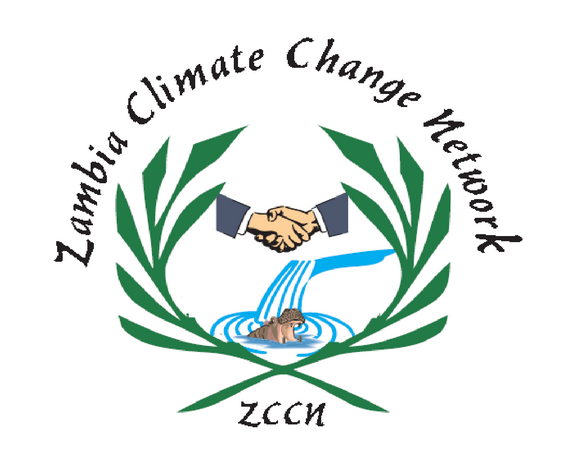Establishment of a 3 Hectare Sustainable Irrigation System
Zambia Climate Change Network - ZCCN | Vizimumba Ward Nyimba District

Zambia Climate Change Network - ZCCN
Innovating the future of tech solutions in Zambia.
Job Description
Introduction
The Zambia Climate Change Network (ZCCN) seeks to establish a 3-hectare sustainable irrigation system in Vizimumba Ward, Nyimba District. This initiative aims to enhance food security, improve agricultural productivity, and empower smallholder farmers to adapt to changing climatic conditions by ensuring a reliable water supply throughout the year. The system will be solar powered as the targeted place of location is not connected to the national grid for power supply. The project is expected to benefit approximately 250 smallholder farmers who are expected to adopt promote Agroecology practices.
Objectives
The primary objective of this assignment is to develop an all-weather resilience hub that shall support smallholder farmers’ quest to harness opportunities in the agricultural sector in Nyimba district amidst changing climatic conditions. Specific objectives shall be to:
- Design the layout of a 3-hectare farm plot demarcated in portions to support smallholder farmers’ agricultural activities
- Design and construct a water trough that will provide water to livestock in the community close to the irrigation facility
- Design and construct a water kiosk that will supply clean water to surrounding communities for domestic use
- Drill a commercial borehole and equip it with a solar-powered irrigation system that shall support activities at the resilience hub
Providing training and capacity-building to smallholder farmers on management of the irrigation system installed for efficient operation of the facility and enhanced lifespan.
Scope of Work
The project will involve site assessment, water source development, irrigation system design, construction, and farmer training. The detailed scope of work is outlined below:
a) Site Assessment and Preparation
- Conduct a hydrogeological assessment to ascertain sufficient availability of water where a borehole shall be drilled. Determine suitability of the proposed location to support the proposed activities based on soil type, climate conditions, and proposed crop selection.
- Laying out the necessary infrastructure.
- Fence the site to protect against encroachment by animals and unauthorized persons.
b) Water Source Development
- Conduct hydrogeological surveys at not less than 3 locations to identify a suitable water source.
- Drill and develop one borehole to serve as the primary irrigation water source.
- Install a heavy-Duty Solar Borehole Water Pump / 1500w 120v DC 120m.
c) Irrigation System Design and Construction
- Design a solar-powered drip irrigation system tailored to the available water supply and crop water requirements.
- Install tank stands, reservoirs, and water distribution networks, including main and secondary pipes plus control valves.
- Install two by 10,000 liters water storage tanks and construct appropriate water supply infrastructure.
- Implement control valves and monitoring systems for efficient water distribution
- Construct field reservoirs and appropriate drainage to prevent waterlogging and soil erosion.
d) Power Supply
- Install a solar-powered water pumping system commensurate with the borehole yield
- Install a booster pump to effectively service the furthest point in the garden
- Determine the appropriate pump size and energy requirements for optimized operation.
e) Training and Capacity Building
- Conduct One training sessions for local farmers on system use and maintenance.
- Provide training on irrigation scheduling, water conservation techniques, and sustainable crop management.
- Develop and distribute training manuals for continued reference.
f) System Monitoring and Evaluation (M&E)
- Develop a one year-long monitoring schedule to assess system performance against design specifications.
- Conduct regular inspections and maintenance recommendations for one year to ensure long-term functionality.
- Collect and analyze baseline data on water usage, crop yield, and system efficiency.
Deliverables
The contractor will be responsible for delivering the following project milestones:
- Inception Report – Details the scope, methodology, and timeline for project execution. Includes site survey results and preliminary assessments.
- Design Documents – Comprehensive system design, engineering drawings, and site layout plans.
- Construction Reports – Periodic updates on construction progress, challenges encountered, and solutions implemented.
- Final Completion Report – A detailed report on the completed system, including pictures as specified in the lay-out plans and technical specifications.
- Development and Provision of Training Materials – Training manuals and documented records of training sessions conducted for farmers.
- Monitoring & Evaluation Reports – Data on system performance, water usage, crop yields, and recommendations for future improvements
Timeline
The project is expected to be completed within six months from the commencement date, with the following estimated timeline
Qualifications & Requirements
Interested contractors must meet the following qualifications:
- Proven experience in designing and constructing sustainable irrigation systems.
- Expertise in solar-powered water pumping systems.
- Experience in working with rural communities and smallholder farmers.
- A registered engineering firm with relevant certifications and licenses.
- Demonstrated capacity to conduct training and capacity-building programs.
- Strong track record of monitoring and evaluating agricultural infrastructure projects.
Application Process
Interested firms or individuals should submit:
- A detailed technical and financial proposal outlining their approach, methodology, and budget.
- CVs of key personnel involved in the project.
- Evidence of experience and references from similar projects.
- Company registration documents and relevant certifications.
- Proposed project work plan and timelines.
All applications must be submitted to the Zambia Climate Change Network (ZCCN) National Secretariat either via email at [email protected] or in person at the National Secretariat Office, located at Mulungushi International Conference Centre, New Wing – Silver Building, Rooms 18 & 20. The deadline for submission is Friday, May 3rd, 2025, and late submissions will not be considered.
Don't miss out on this opportunity!